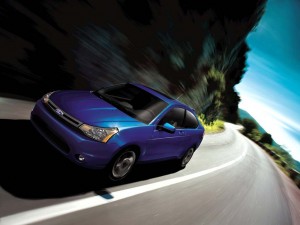It’s become conventional wisdom that hybrids have a significant energy advantage over commonplace gasoline and diesel-powered automobiles. But according to a new study, conventional wisdom is once against wrong.
In a face-off that takes into account everything from production to the eventual disposal of a vehicle – along with the fuel used while that vehicle is on the road – gasoline and diesel trump hybrids, declares the latest in an ongoing series of “Dust to Dust” studies by the West Coast research firm, CNW Marketing.
But pure battery-electric vehicles, or BEVs, may trump all other automotive technologies, according to CNW’s chief, Art Spinella.
“When it comes to the total energy cost to society of individual models of vehicles, diesel and gasoline powered vehicles are less expensive from “Dust to Dust” than the current comparable hybrid offerings,” says Spinella, adding that, “In a face-off between diesel and gasoline, diesel-powered models are similarly less energy intensive.”
The study calculates factors such as product development, manufacturing, maintenance and recycling into the estimated cost-per-mile of more than 300 individual vehicles sold in the U.S. Those total energy costs run from as little as $0.776 per mile for the budget segment to $7.239 for ultra-luxury models. The industry average, reports CNW, is $2.638.
The lowest-cost model among all 300 vehicles is the current-generation Ford Focus, with a per-mile cost of $0.547. But the popular Toyota Prius, which is the world’s best-selling hybrid, comes in at $1.892, according to CNW, and that’s the lowest of any hybrid vehicle. The complex and challenging cost of producing and later disposing of a hybrid’s battery drives up energy costs significantly, according to CNW.
Surprisingly, the Dust to Dust study finds that a big vehicle like the Ford Transit Connect van is actually cheaper, on an energy basis, than the Prius, with a cost-per-mile of just $1.207. But even heavy-duty pickups, such as the Chevrolet Silverado 2500HD and Ford F-250 Super Duty, are listed as having lower per-mile energy costs, at $1.627 and $1.781 respectively, than Prius.
But the advantage shifts when looking at battery-only vehicles, such as the upcoming Nissan Leaf, according to Spinella. “The Leaf has the chance of becoming that lowest-energy model in time,” he predicts. “But we won’t know until volumes are set and the car is able to remain in the market for a lengthy period of time.”
Like CNW’s earlier Dust to Dust study, the latest report is expected to generate significant controversy, with makers of hybrids especially critical. The first report found that a Hummer was actually more energy efficient than a Prius, a figure that clearly flies in the face of conventional wisdom. But Spinella stands behind the data and insists that unless everything is considered, using just a mile per gallon calculation to determine the energy consumption of a vehicle is completely misleading.

